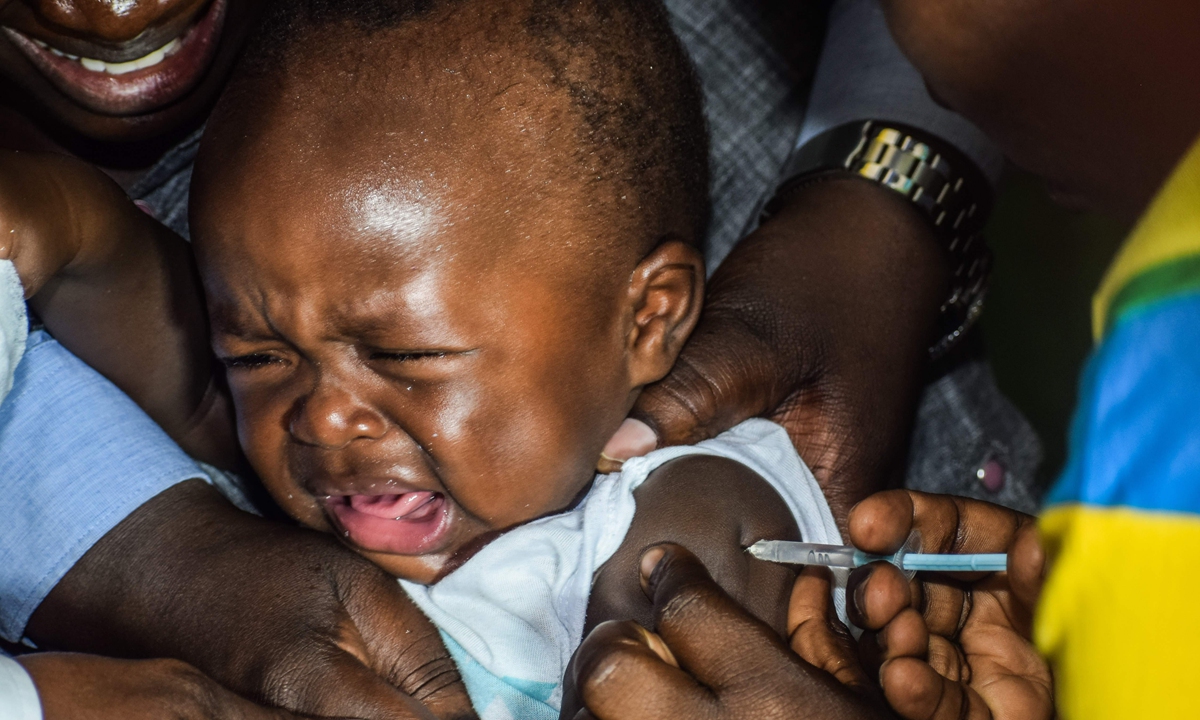Drug-resistant malaria gaining foothold in Africa: study
Drug-resistant malaria gains foothold in Africa: study
Researchers on Thursday reported the first clinical evidence that drug-resistant mutations of the parasite responsible for malaria are gaining ground in Africa.

In clinical trials, the disease lingered longer in children receiving standard treatment for malaria if they were infected with mutant strains of the disease, the study found.
The efficacy of Artemisinin-based combination therapies (ACTs) remained high, but the researchers said there was an "urgent need" for more monitoring in Rwanda, where the study was conducted, as well as in neighboring countries.
There are an estimated 229 million cases of malaria worldwide, according to the World Health Organization.
The disease killed more than 400,000 people in 2019, more than two-thirds of them children. Malaria is caused by the Plasmodium falciparum parasite, which is carried by female mosquitos from any of several dozen species in the genus Anopheles. "Our study shows that resistant isolates are starting to become more common," said lead author Aline Uwimana, a researcher at the Rwanda Biomedical Centre in Kigali.
Introduced in the early 2000s, ACTs are the most effective and widely used treatments for malaria. The medication combines an artemisinin component that clears most of the pathogens from the patient's body within three days.

A child is vaccinated against malaria on September 13, 2019 in Ndhiwa, Homabaya County, Western Kenya during the launch of malaria vaccine in Kenya. Photo: VCG
Experts have long worried about the emergence of drug resistance across the continent, which accounted for more than 90 percent of malaria deaths worldwide in 2019. A new study published in The Lancet appears to confirm those fears.In clinical trials, the disease lingered longer in children receiving standard treatment for malaria if they were infected with mutant strains of the disease, the study found.
The efficacy of Artemisinin-based combination therapies (ACTs) remained high, but the researchers said there was an "urgent need" for more monitoring in Rwanda, where the study was conducted, as well as in neighboring countries.
There are an estimated 229 million cases of malaria worldwide, according to the World Health Organization.
The disease killed more than 400,000 people in 2019, more than two-thirds of them children. Malaria is caused by the Plasmodium falciparum parasite, which is carried by female mosquitos from any of several dozen species in the genus Anopheles. "Our study shows that resistant isolates are starting to become more common," said lead author Aline Uwimana, a researcher at the Rwanda Biomedical Centre in Kigali.
Introduced in the early 2000s, ACTs are the most effective and widely used treatments for malaria. The medication combines an artemisinin component that clears most of the pathogens from the patient's body within three days.
